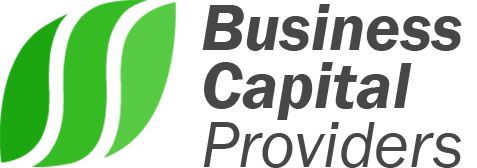
Introduction
As a small business owner, you may require additional funding for a variety of reasons, such as equipment purchases and hiring costs. But what if you don’t have collateral to provide as security?
A no-collateral advance, or unsecured funding, is a good alternative if you need funds quickly and you are not able to provide collateral on short notice. This blog breaks down how you can improve your credit score and loan eligibility, what you will need in place of collateral, and the benefits of different types of unsecured funding.
Terms You Should Know
Here’s a quick look at some financial terms you may come across while reading, and their definitions.
Collateral
Physical assets of significant value, such as housing or vehicles, borrowers can offer up as security to protect the interest of lenders.
Creditworthiness
Creditworthiness determines a borrower’s likelihood of repaying debts and takes into account current credit score, credit history, and credit utilization, among other factors.
Revolving loan
A revolving loan is a flexible financing arrangement that allows borrowers to repay and re-borrow the loan amount multiple times during the defined period.
Term loan
A term loan is a lump sum loaned to borrowers with the expectation that it will be repaid in fixed installments over a specified period.
With these terms in mind, let’s take a look at secured and unsecured funding, and why knowing the difference between them is important.
What Are The Differences Between Secured And Unsecured Funding?
Both secured and unsecured funding types have various benefits and it’s important that you choose what best suits your business’s needs. Secured and unsecured funding differ in the following ways:
Secured Funding |
Unsecured Funding |
|---|---|
| Approved with the use of property or other physical assets as collateral. | Relies on borrower creditworthiness as opposed to collateral. |
| Less reliant on borrower credit history. | Takes borrower’s credit history into account. |
| Usually has a lower rate of interest along with a longer repayment period. | Typically charges a higher interest with a less flexible repayment plan. |
Choosing the right type of funding is key to maintaining efficient operations of your business in both the short term and the long term. With this in mind, you may be thinking about the types of collateral you may need to provide for a loan.
What Types Of Funding Are Available Without Collateral?
Unsecured funding can either be revolving loans or term loans. Revolving loans have a credit limit that can be spent and repaid, continuously. Term loans can be repaid in equal installments until the loan is paid off at the end of its term.
Different loans have different terms and requirements. Some of these types of loans include:
Traditional Funding
SBA 7(a) Loans
Government loans by the SBA (Small Business Administration) upto $25,000, generally beneficial to startups and small businesses.
SBA Disaster Loans
Government loans upto $2 million for businesses affected by natural disasters and economic crises.
Alternative Funding/Online Lenders
Term Loans
Borrowers usually get quick access to funds at high interest rates.
Lines of Credit
Flexible funding that can be accessed whenever borrowers need working capital, and repaid either immediately or over a defined period.
Invoice Factoring
Borrowers leverage outstanding business invoices to fund cash flow.
Merchant Cash Advances
(MCA’s’) Borrowers get a lump sum which they repay by providing the lender with a percentage of the business’s future sales until the advance is paid off.
Peer-to-peer financing/Crowdfunding
A group of investors fund the advance together, and borrowers pay it back with interest.
Equipment Financing
The equipment that is bought or leased for a business serves as collateral until repayment is settled.
To get approved for funding, lenders will look at an applicant’s credit score, among other things. The higher your credit score, the higher your chances of getting approved. Let’s look at what a no-collateral advance is, ways to better your chances of getting funded, such as improving your credit score and financial records.
What Is A No-Collateral Advance?
No-collateral funding is a type of financing that does not need collateral. Instead, approval for funding relies on the borrower’s creditworthiness. They are also referred to as “good faith loans” because lenders assume more risk than secured loans. No-collateral advances are relatively straightforward, much like a personal loan. Borrowers take from lenders and agree to pay back the advance in full, over a defined period of time, with any interest owed. Because funding does not rely on collateral for security, interest rates are typically higher. Credit cards are another example of unsecured funding.
How Can You Improve Your Chances Of Getting Approved For A No-Collateral Advance?
Unsecured loans are riskier for lenders because they aren’t backed by collateral. As a result, you can expect higher interest rates. However, the terms of your advance are more likely to be in your favor if you possess good credit. Building good credit for your business should be a top priority as a business owner, this is because:
A good credit profile improves your chances of qualifying for traditional bank loans and alternative funding routes at lower interest rates and flexible repayment.
Many small-business borrowers whose applications are turned down by creditors are rejected because of poor credit scores, while others miss out because of inconsistent cash flow and bankruptcy.
If approved, borrowers with poor credit are usually given higher interest rates and less favorable terms.
Since funding relies on the borrower’s creditworthiness for approval, having a consistently high credit score improves the likelihood of getting approved. There are also other factors, such as a history of having successfully paid off past advances, that will also help your case:
01. Register Your Business
Get an Employer Identification Number (EIN, also known as a Federal Tax Identification Number). An EIN identifies your business for tax-related purposes, and you will need one to open a bank account and apply for licensing. Apply for an IRN here.
02. Familiarize Yourself With The Three Major Credit Bureaus.
Keep your information current with Equifax, Experian and TransUnion as you never know which credit bureau your vendors, creditors or potential customers will check.
Borrow from lenders that report to the above credit bureaus.
03. Establish Trade Lines With Your Suppliers As Those Purchases Could Help Build Your Business Credit.
Credit reports that don’t show trade lines makes it difficult for lenders to assess your business’s creditworthiness.
Seek out vendors that report to credit bureaus, and keep these accounts active with business-related purchases.
04. Consistently Repay Creditors Early Or On Time, As All Credit Bureaus Consider Your Repayment History.
05. Get A Business Credit Card To Simplify Cash Flow, Streamline Expenses And Earn Rewards.
Credit utilization is considered when checking credit scores, so limit your spending to 20% to 30% of your credit limit.
It is better to retain a credit card, pay it off and maintain a low credit utilization ratio than have a closed card.
06. Be Aware Of Your Public Records.
Different credit bureaus treat your records in different ways. For example, Experian retains bankruptcy on your credit score for 10 years, and tax liens, judgments, and collections for almost seven years.
07. Provide A Cosigner.
Some lenders may ask that borrowers with insufficient credit have a cosigner. Cosigners act as a “backup” and take on the responsibility of repaying the advance on your behalf if your business were to default (fail to pay it back).
08. Update Your Financial History.
In addition to building your credit, be sure to update your balance sheets, review all personal and business-related expenses and provide a forecasted cash flow.
09. Sign A Personal Guarantee/Ucc Lien.
You may be asked to sign a personal guarantee or U.S. Uniform Commercial Code (UCC) Lien in place of providing capital.
A personal guarantee states that you will personally repay the advance in place of your company, should it default.
In contrast, a UCC Lien gives the lender the right to assume some of the company’s assets to compensate for the outstanding debt.
Applicants may worry that having a credit check conducted may reflect poorly on their record. At Business Capital Providers, we conduct background checks without the hard credit pulls that impact your credit score. As a result, your eligibility for future loans remains unaffected.
What Are The Pros And Cons Of No-Collateral Advances?
While there are certainly benefits to this type of funding, it’s important to identify whether it’s right for your business. Remember to speak with a business advisor before applying, because defaulting can have negative consequences for you and your business.
Here’s a quick summary of the pros and cons of no-collateral advances:
Pros |
Cons |
|---|---|
| Providers of unsecured funding (online lenders) have less stringent terms. | Interest rates are usually higher as lenders assume more risk. |
| Borrowers face less financial risk as they aren’t providing capital. | Borrowers might need to provide a personal guarantee. |
| The application process is typically less time-consuming. | Funding is usually provided in lower amounts than secured loans. |
Business Capital Providers Can Fund Your Business Without Collateral
Now that you have more insight into the different types of unsecured funding and their benefits, you’re one step closer to funding the growth of your business. If you haven’t already, it’s time to consult a business advisor, get all necessary documents in order and begin the application process. Business Capital Providers makes funding simple without the red-tape associated with traditional lenders, so speak with one of our advisors to create a funding plan that suits your business needs!
Here’s a quick summary of the pros and cons of no-collateral advances:
Frequently Asked Questions
How Do I Apply For A No-Collateral Advance?
Once you optimize your eligibility by cleaning up your financial history and improving your creditworthiness, reach out to Business Capital Providers and speak with an expert to get started on your application.
Do I Have To Apply For Funding Through A Bank?
Traditional lenders such as banks and credit unions can certainly help you access funding, however, they come with strict terms and long wait times. Online lenders and other alternative funding routes are more flexible and can fund your business faster.
What Documents Will I Need To Apply For Funding?
Different lenders may have different requirements, but prepare the following documents as a general rule-of-thumb:
Bank statements
Personal and business tax records
Any business licenses, permits and leases
Employee Identification Number (EIN)
Personal guarantee or UCC Lien
Balance sheets
Forecasted cash flow
Disclosure of other debt
Accounts payable/receivable
Legal contracts and agreements as well as documents that stipulate ownership/affiliations
Personal identification such as a driver’s license
Business insurance plans
Payroll records
Incorporation documents
Business plan

